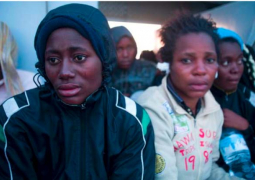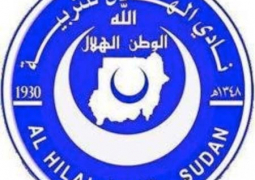International Monetary Fund (IMF) on Thursday decided to give The Gambia about US$10.8 million to remedy the country’s economy which has been in rough waters due to 60 per cent decline in tourism, increased balance of payment deficit, and weak policy implementation.
The IMF said in a statement released after it approved the bailout that the ‘emergency financial assistance’ is intended to restore macroeconomic stability and to fill the financial gaps in the budget.
The decline in tourism related activities, the economy’s principal foreign currency earner, is caused by the Ebola outbreak though The Gambia remains completely free of the disease. This decline further widened the country’s balance of payment deficit which in turns exacerbated the fragile macroeconomic situation of the country.
The IMF noted that although its financial assistance is not enough to take care of the all the present financial needs of the country, it will enable the government to engage in further discussions with the donor community regarding assistance to meet the “remaining financing needs”.
Mr Min Zhu, deputy managing director of IMF, said: “The Gambia is facing urgent balance of payments needs triggered mostly by the impact of the regional Ebola outbreak on tourism. Although the country remains free of Ebola, the regional outbreak is expected to cut by more than half tourism receipts for the 2014/15 season, giving rise to an urgent balance of payments need.”
Mr Zhu noted that the delayed summer rain has led to a significant drop in agricultural production with serious implications for growth in 2014 and food security.
Also, policy slippages and persistent financial difficulties in public enterprises have exacerbated the problems of the country.
Corrective measures within
The IMF deputy director said the government has not only stretched out hands for support but has also taken “a number of upfront policy actions”.
The government has taken bold steps in the 2015 budget, developed an ambitious reform agenda for public enterprises in the energy and telecommunication sectors, and made strong efforts to secure donor support.
“The 2015 budget envisages lowering net domestic borrowing, anchored by revenue and expenditure measures, and complemented by stepped-up budget support from external donors,” he said. “The authorities have taken steps to begin resolving the financial problems of key public enterprises and intend to take measures to secure their medium-term fiscal consolidation and poverty reduction objectives.”
“The envisaged adjustment and structural reforms, if properly implemented, would contribute significantly to addressing The Gambia’s present difficulties and achieving the targets envisaged in the Programme for Accelerated Growth and Employment,” he added.
He said such measures should also help lower domestic interest rates and therefore alleviate medium-term spending pressures associated with the currently very high level of domestic interest costs.
Future plans
The IMF boss said that in light of the large fiscal cost of poor performing public enterprises in 2014, the government should promptly identify contingency plans to protect budgetary outcomes in 2015 from unexpected shocks.
“They should also meet their external debt obligations in a timely manner,” he advised.
Mr Zhu said further measures, beyond those incorporated in the 2015 budget, are also required to undertake a deeper restructuring of the budget and public enterprises to put the medium-term fiscal position on a sound footing.
He pointed out that determined and strong policy implementation is critical to restore macroeconomic stability in The Gambia and to catalyze the critical donor financing.
The Fund has not only given the financial assistance, it also offered to monitor the implementation of the government’s economic programme.



